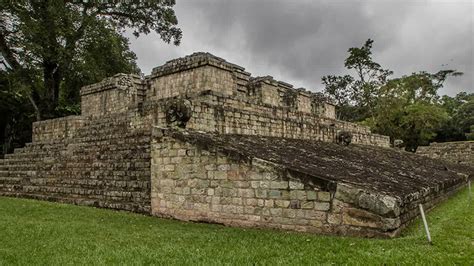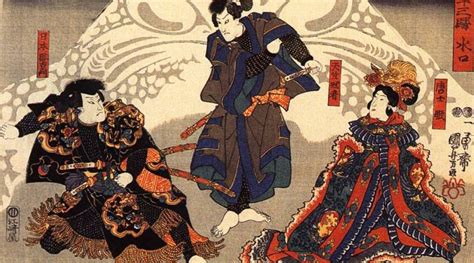Explore the rich history of Belize from the Colonial Era and Mayan Civilization to British Rule and the Independence Movement, leading to modern Belize.
Colonial Era
The Colonial Era of Belize began with the arrival of European settlers in the early 16th century. The first European to set foot in present-day Belize was Spanish conquistador Hernan Cortes, who claimed the land as part of the Spanish Empire. However, it was not until the mid-17th century that the British began to establish a more permanent presence in the region. The main focus of colonial activity in Belize during this era was the extraction of natural resources, particularly timber and mahogany.
In the mid-18th century, the population of Belize grew with the arrival of African slaves who were brought in to work on the plantations. The colony was under constant threat of attack from Spanish forces, and during this time, the settlement of Belize City was established as the capital. The British presence in Belize was solidified with the signing of several treaties with Spain, and by the early 19th century, Belize had become a British colony.
During the colonial era, the influence of British culture began to shape the identity of Belize, as English became the primary language and British institutions were established. The economy of Belize was largely based on agriculture, with sugar, bananas, and citrus fruits becoming major exports. The colonial era came to an end in 1981 when Belize gained its independence from Britain, marking the beginning of a new chapter in the country’s history.
Overall, the colonial era of Belize was characterized by the exploitation of natural resources, the arrival of African slaves, and the establishment of British rule. This period laid the foundation for the modern nation of Belize, shaping its culture, economy, and society in significant ways.
Mayan Civilization
The Mayan Civilization was one of the most advanced ancient civilizations in the Americas, with a rich and complex culture that thrived for thousands of years in the region that is now modern-day Belize. The Mayans were skilled architects, engineers, mathematicians, and astronomers, and they left behind a legacy of impressive pyramids, temples, and other monumental structures. Their city-states were interconnected through a sophisticated network of trade routes, and they developed a system of writing and hieroglyphics that recorded their history, religious beliefs, and scientific knowledge.
Religion played a central role in Mayan society, and their cities were built around ceremonial centers dedicated to the worship of their gods. They practiced human sacrifice, bloodletting, and other rituals as part of their religious ceremonies. The Mayans also made significant advancements in agriculture, cultivating maize, beans, and squash, and they created elaborate irrigation systems to support their growing population.
The decline of the Mayan Civilization is still a topic of debate among historians and archaeologists. It is believed that a combination of factors, including climate change, warfare, and political instability, led to the collapse of the Mayan city-states around 900 AD. Despite the fall of their civilization, the legacy of the Mayans continues to live on in the traditions, customs, and beliefs of the people of Belize and the surrounding region.
In modern-day Belize, visitors can explore remarkable Mayan ruins such as Xunantunich, Caracol, and Lamanai, and gain insight into the fascinating history and culture of this ancient civilization. The Mayan Civilization serves as a testament to the ingenuity and resilience of the indigenous peoples of Central America, and their impact can still be felt throughout the region today.
British Rule
During the British Rule of Belize, the country underwent significant changes in terms of governance, economy, and culture.
The British imposed their legal and administrative systems, which led to the establishment of a colonial government and the introduction of English as the official language. This had a lasting impact on the cultural and linguistic landscape of Belize.
Under British Rule, the economy of Belize was primarily based on the exploitation of natural resources, particularly the lucrative mahogany and logwood industries. This led to the importation of African slaves, who played a crucial role in the development of the country’s economy.
The British also exerted control over the indigenous Maya population, resulting in conflicts and displacement of communities. The imposition of British authority and the marginalization of the indigenous people had long-lasting repercussions on the social fabric of Belize.
Despite the challenges and injustices of British Rule, it also laid the foundation for the modern political and social structures of Belize, which eventually paved the way for the country’s independence movement.
Independence Movement
The Independence Movement in Belize was an important period in the country’s history, leading to the nation’s eventual independence from British rule. It was a time of political, social, and cultural upheaval as the people of Belize sought to break free from colonial control and establish their own identity as a sovereign nation. The movement was characterized by widespread activism, protests, and demonstrations, as well as a push for constitutional reform and self-governance.
One of the key figures in the Independence Movement was George Cadle Price, who is often referred to as the Father of the Nation for his instrumental role in leading Belize to independence. As the leader of the People’s United Party, Price was a driving force behind the push for self-determination and played a crucial role in negotiations with the British government.
The culmination of the Independence Movement came on September 21, 1981, when Belize officially gained its independence from Britain. This momentous occasion was marked by celebrations, parades, and a sense of national pride as the country took its place among the community of independent nations. The new nation of Belize was able to forge its own path, establish its own government, and pursue its own destiny free from the constraints of colonial rule.
Today, the Independence Movement remains a pivotal chapter in Belize’s history, serving as a reminder of the resilience, determination, and unity of the Belizean people in their quest for freedom and self-governance. The legacy of the movement continues to shape the national identity and spirit of the country, embodying the values of independence and sovereignty that are cherished by all Belizeans.
Modern Belize
Modern Belize is a vibrant and diverse country located in Central America. Its rich history and unique cultural heritage make it a fascinating place to explore. From the beautiful beaches and diverse wildlife to the bustling cities and ancient ruins, there is something for everyone in this amazing country.
Belize gained independence from Britain in 1981, but its modern history goes back much further. The country has a diverse population, including a mix of indigenous Maya people, African descendants, and European settlers. This diversity is reflected in the country’s languages, cuisine, and traditions.
One of the most important aspects of modern Belize is its commitment to environmental conservation and sustainable tourism. The country is home to the world’s second-largest barrier reef, as well as vast tracts of untouched rainforest. The government and local communities are working hard to preserve these natural wonders while also promoting responsible and eco-friendly tourism.
In addition to its natural beauty, modern Belize is also a hub of cultural activity. The country’s vibrant music, dance, and art scenes are thriving, and there are numerous festivals and events celebrating Belize’s diverse heritage throughout the year. Visitors can also explore the remains of ancient Maya cities, which offer a glimpse into the country’s rich historical past.
Overall, modern Belize is a place of stunning natural beauty, rich cultural heritage, and warm and welcoming people. Whether you are interested in exploring ancient ruins, snorkeling in crystal-clear waters, or simply relaxing on a beautiful beach, there is something for everyone in this incredible country.














